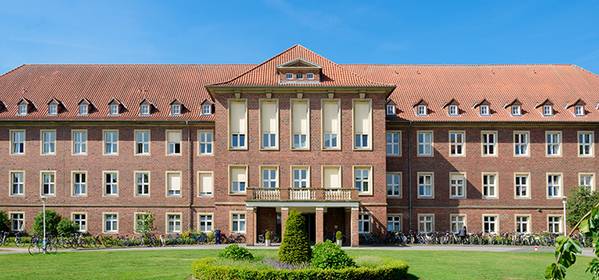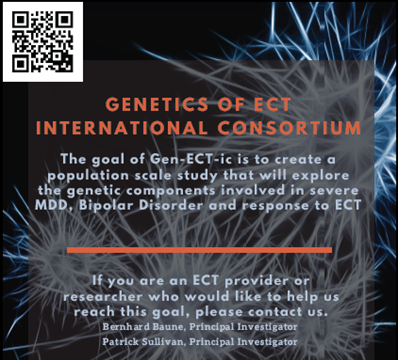The Genetics of ECT International Consortium (gen-ECT-ic) is a collaboration between ECT providers and researchers all over the globe.
Gen-ECT-ic is one of the projects currently being run as part of the Psychiatric Genomics Consortium’s Major Depressive Disorder (MDD) working group. The goal of gen-ECT-ic is to shed light on the genetics involved in severe major depressive disorder and patient response to ECT.
Partners and Results to date
- Bernhard Baune, PGC
- Declan McLaughlin, International Society for ECT and Neurostimulation
- Takahhiro Soda, UNC
- Patrick Sullivan, PGC
- Peter Zandi, NNDC



